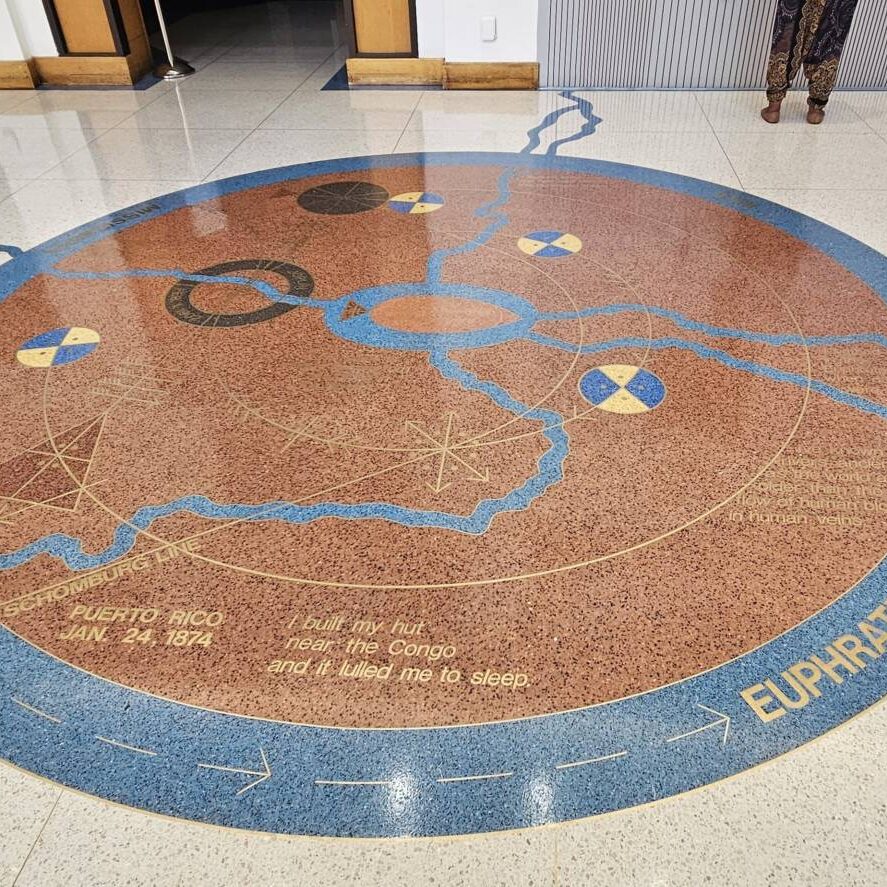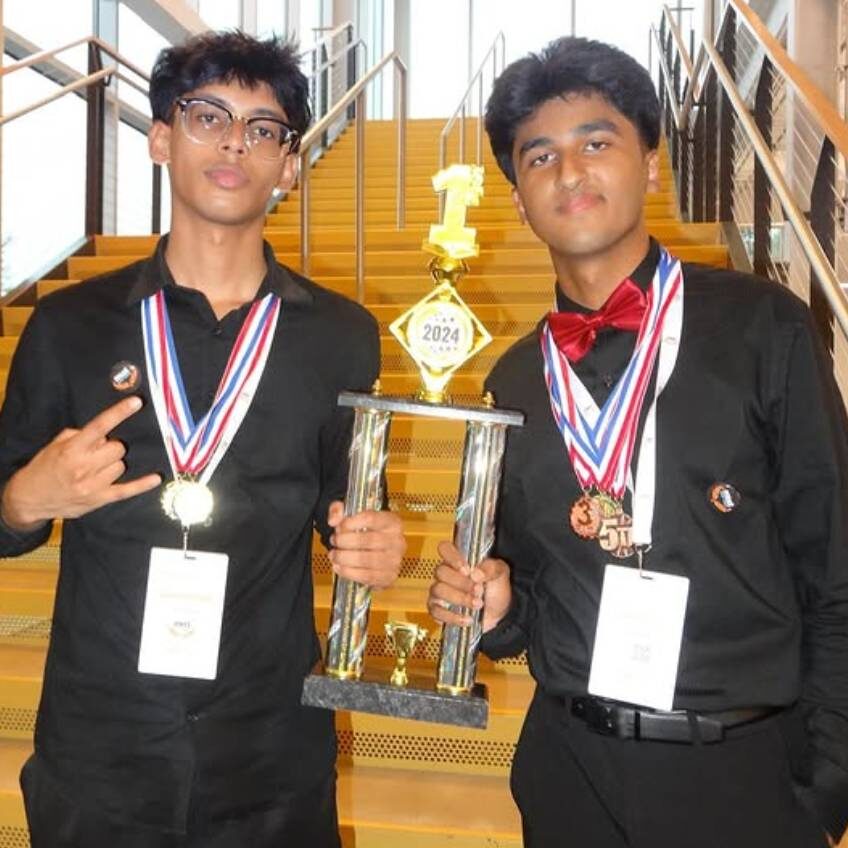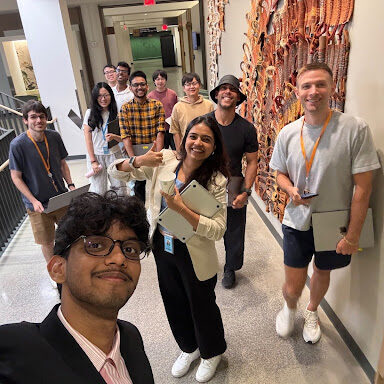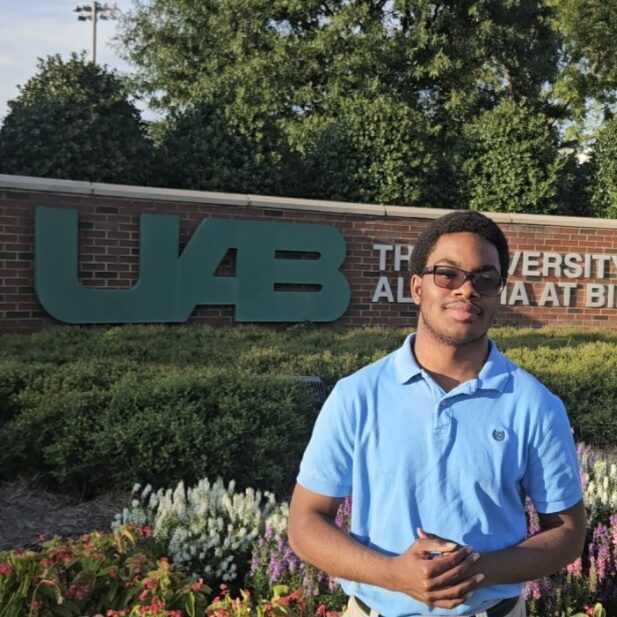As a first-year, Sadat Ahmed—now a sophomore majoring in Electrical and Computer Engineering—returned to a community that had shaped some of his most defining high school experiences. For Sadat, the Muslim Interscholastic Tournament (MIST) had always been more than a competition. It was where he discovered leadership, formed lasting friendships, and learned to believe in his own potential. Coming back as a Software Engineering Intern gave him the chance to reconnect with the program in a new and meaningful way.
Continue reading Returning to Roots: Sadat’s Summer at the Muslim Interscholastic TournamentBeyond the Orange Bubble: A Guide to Thesis Research Abroad

One of the greatest benefits of being a Princeton student is the unparalleled access to international opportunities. Whether it’s traveling for classes and clubs, completing an IIP (International Internship Program), doing fieldwork through HMEI (High Meadows Environmental Institute), taking a Global Seminar course through PIIRS (Princeton Institute for International and Regional Studies), or participating in Princeton’s many language programs abroad, many students find ways to leave the Orange Bubble—literally. To become better-informed global citizens, it is important not only to study the world from Princeton, but also to spend time in the world beyond Princeton.
One powerful way to do this is by conducting research abroad. When I was a junior preparing for my senior thesis, I knew I wanted to incorporate an international dimension into my work and, if possible, travel over winter break of senior year. Although I had been fortunate to travel domestically through Princeton, I hadn’t yet taken advantage of any study or research opportunities abroad. Winter break of senior year is one of the last, and most popular, chances to do so. Princeton has a wide range of thesis funding sources, which makes it very possible to take your research to an international site.
Continue reading Beyond the Orange Bubble: A Guide to Thesis Research AbroadScaling Solutions: Kyaw Naing’s Internship Journey at Amazon
This summer, Princeton sophomore Kyaw Naing returned to his hometown of New York City for a 12-week internship with Amazon’s Grocery Subscription team, an opportunity made possible through the Amazon Future Engineer (AFE) program. AFE is a highly competitive national initiative that aims to support students from underrepresented and underserved communities in STEM, offering college scholarships, mentorship, and paid internships at Amazon. Kyaw was one of only 400 students selected for the program. As an Electrical and Computer Engineering student from Queens, Kyaw saw the internship as a chance to push himself beyond the classroom. During his time with the Grocery Subscription team, he tackled real-world technical challenges at massive scales while working on services that millions of customers rely on every day.
The team owns the whole lifecycle of Grocery Subscription and focuses on building the Amazon Grocery Subscription, enabling customers to subscribe and order groceries. Work on the team involves significant research into sophisticated cloud infrastructure and pipelines and for Kyaw, this was the perfect environment to connect what he learned in his COS classes with real-world practice and research.
Continue reading Scaling Solutions: Kyaw Naing’s Internship Journey at AmazonDoha Diaries: Zara’s Internship at QCRI
This summer, Zara Hommez traveled from Princeton to Doha, Qatar, for an internship at the Qatar Computing Research Institute (QCRI), where she worked in the Humanitarian AI division. As a sophomore majoring in Operations Research and Financial Engineering (ORFE), she was drawn to the placement through Princeton’s International Internship Program (IIP) because it offered a rare blend of quantitative modeling, computer vision, and real-world impact, which is the exact intersection she hopes to pursue.
When browsing IIP opportunities, QCRI immediately stood out. Its mission to use data and AI to address global humanitarian challenges aligned perfectly with her academic interests in optimization, systems thinking, and applied machine learning. The chance to live in Doha, a rapidly growing, modern city at the heart of the Middle East, added an exciting cultural dimension she was eager to explore.
Continue reading Doha Diaries: Zara’s Internship at QCRIWho Guides the Guardrails?
There’s no doubt that the summer is one of the most promising times to experiment with your research interests, and the International Internship Program (IIP) can provide awesome opportunities for Princeton students to explore those curiosities. From creating theoretical frameworks to engaging with lab-based experimentation, there’s a wide range of ways to explore research through the summer program.
I had the pleasure of sitting down with Katya Grygorenko (‘27), who spent her summer doing research on artificial intelligence (AI) for the Center for the Study of Democracy (CSD), a public policy institute based in Sofia, Bulgaria. The rise of Large Language Learning Models (LLMs) like OpenAI’s ChatGPT and other AI systems has inspired uncertainty, and even fear. The idea of a “black box where people don’t really know what’s going on”, as Grygorenko put it, can feel daunting to think about. But the idea of tackling the ethical challenges of implementing these complex digital systems didn’t scare Grygorenko at all— it excited her.
Continue reading Who Guides the Guardrails?Expect the Unexpected: Exploration in Archival Research

This summer, I had the opportunity to do a fellowship at the Schomburg Center for Research in Black Culture in Harlem. The Schomburg is one of the largest archives of Black History in the world, and as part of my fellowship, I got to use their collections to craft an independent research project. Coming into the program, I had a very specific idea of what I wanted to find in the collections. I had found a disagreement in the scholarly literature about the historical relationship between two church denominations. Some scholars argued that the two denominations were historically one, while others argued that they had always been separate organizations. In the Schomburg’s research catalogue, I saw that there was a collection of personal papers belonging to one of the denominations’ founders, which I saw as an opportunity to add a new perspective to this debate.
Continue reading Expect the Unexpected: Exploration in Archival ResearchJumping Back In!
The summer is always a great time to get involved in research, whether on campus or off campus. One common challenge, however, is figuring out how to actually become a part of those research opportunities. At the end of this summer, I was fortunate enough to be able to return to the research team I worked with last year. While it was exciting to once again be working on the study (an investigation into the effectiveness of peer coaching on high blood pressure) it was a different experience the second time around. Jumping back into any project can introduce new challenges, and research is no different.
Continue reading Jumping Back In!“My Summer in Kuala Lumpur”: Iman’s Internship Journey
This summer, Iman Bedru ’28 traveled from Woodbury, Minnesota, to Kuala Lumpur, Malaysia, for an internship with Chumbaka, an organization dedicated to empowering youth through technology and education. As a rising sophomore in Electrical and Computer Engineering, Iman went to Malaysia through Princeton’s International Internship Program (IIP), drawn by the opportunity to connect her technical background with her passion for education and community engagement.
When browsing through IIP’s opportunities, Chumbaka stood out immediately. Its mission, which is to equip students and teachers with the tools to explore and innovate through STEM, aligned perfectly with Iman’s vision of using engineering knowledge to create meaningful social impact. The fact that the internship was based in Malaysia only added to the appeal. A country rich in cultural and ethnic diversity, Malaysia promised not just professional growth, but also immersion in a vibrant new environment.

Patient Stories, Clinical Data and Children’s Lives: My Experience with Pediatric Oncology Research
The nine-year-old patient sat in his bed, nose buried in a book, his peach-fuzz hair just visible over the book he held close to his face. As my mentor quietly began explaining the next steps of his treatment to his family, I crouched next to the bedside to ask him about his book, which I had loved dearly in elementary school. Neither the patient’s beeping machines nor his swollen body slowed him down as he began excitedly chattering to me about the story. A few minutes later, we thanked the family and moved onto the next room.* This child was just one of many leukemia patients whose story and data I had pored over in my clinical research experience this summer.
Continue reading Patient Stories, Clinical Data and Children’s Lives: My Experience with Pediatric Oncology ResearchResearch, Friends, Mountains, and Everything in Between
When I boarded my flight to Munich this summer, I thought I knew exactly what awaited me: labs buzzing with experiments and discoveries, even a big “Aha!” moment that would shape my research career. After spending over a month home in Thailand, beach hopping and exploring the underwater world with my scuba diving gear, I was ready to slip back into my academic shoes and make the most out of my time in a new country.
What I found was… not quite what I expected.
While I had overestimated how sparkly the research world would be, I didn’t even come close to imagining how many lessons I would learn or how many memories I would make.
Continue reading Research, Friends, Mountains, and Everything in Between







